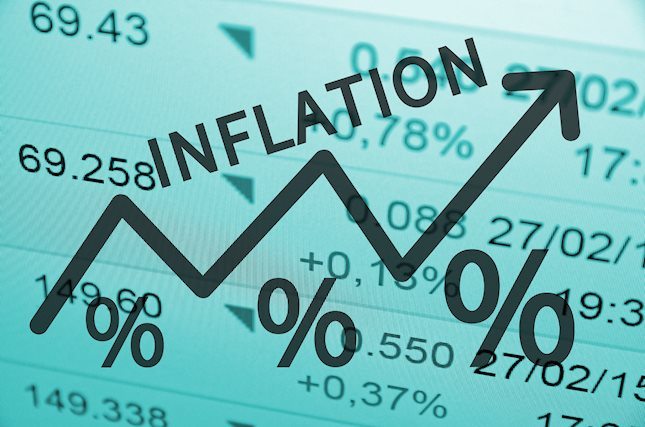- Analytics
- News and Tools
- Market News
- Gold Price remains vulnerable near 200-day SMA, bears await US CPI on Friday
Gold Price remains vulnerable near 200-day SMA, bears await US CPI on Friday
- Gold Price witnessed some selling on Thursday amid a further rise in the US bond yields.
- Hawkish central banks further contributed to driving flows away from the commodity.
- A softer risk tone, modest USD downtick extended some support and helped limit losses.
Gold Price edged lower on Thursday and was last seen trading around the $1,848-$1,847 region, just above the very important 200-day SMA support. Elevated US Treasury bond yields, bolstered by hawkish Fed expectations, turned out to be a key factor that weighed on the XAUUSD. That said, some intraday US dollar selling, along with a generally weaker risk tone, helped limit deeper losses for the XAUUSD, at least for the time being.
Gold Price weighed down by hawkish central banks
Following a brief retracement during the early part of the week, the 10-year US bond yield climbed back above the 3.0% threshold amid concerns about rising inflation. Crude oil prices climbed to their highest levels since early March amid an improving demand outlook. Apart from this, the global supply-chain disruptions caused by the Russia-Ukraine war and the COVID-19 lockdowns in China could put upward pressure on already high consumer prices. This might force the US central bank to tighten its monetary policy at a faster pace, which remained supportive of the recent rally in the US bond yields.
The European Central Bank also hinted that it intends to raise interest rates by 25 bps in July and left the door open for a potential 50 bps hike in September. In the monetary policy statement, the ECB said that if the medium-term inflation outlook persists or deteriorates, a larger increment will be appropriate at the September meeting. This comes on the back of a 50 bps rate hike by the Reserve Bank of Australia and the Reserve Bank of India on Tuesday and Wednesday, respectively, which continued acting as a headwind for the non-yielding yellow metal.
Subdued USD demand, softer risk tone lend support
Meanwhile, the post-ECB buying around the shared currency weighed on the greenback and held back traders from placing aggressive bearish bets around the dollar-denominated XAUUSD. Meanwhile, doubts that major central banks can hike interest rates to curb inflation without impacting economic growth continued weighing on investors' sentiment. This was evident from the prevalent cautious mood around the equity markets, which could further lend some support to the safe-haven precious metal. Investors might also prefer to wait on the sidelines ahead of the US consumer inflation figures, scheduled for release on Friday.
Focus remains on US CPI
The US inflation report would determine the Fed's policy tightening path and influence the near-term USD price dynamics. This, in turn, should provide a fresh directional impetus to the XAUUSD, which is often considered a hedge against inflation. According to Joseph Trevisani, Senior Analyst at FXStreet: Even though Fed policy for at least the next two meetings will not be affected by the CPI results for May or June, there is considerable room for a market response depending on the deviation from forecasts. Market risk lies primarily with a higher than predicted inflation number. There are good reasons to suspect that a portion of the May oil and gas price increases were not captured in the analysts surveys that produce the forecasts.

Inflation fears
Gold Price technical outlook
Gold Price continued showing some resilience near a technically significant 200-day SMA. The said support, currently near the $1,842-$1,841 region, should act as a pivotal point, which if broken decisively could drag the XAUUSD to the $1,830 region. The downward trajectory could further get extended towards the $1,810-$1,808 intermediate support en-route the $1,800 round-figure mark.
On the flip side, the weekly high, around the $1,860 region touched on Wednesday, now seems to act as an immediate strong barrier ahead of the $1,870 supply zone. Sustained strength beyond the latter would negate any near-term bearish bias and lift the XAUUSD to the $1,885-$1,886 area. Bulls might eventually aim back to reclaim the $1,900 mark for the first time since early May.
-637903789782795367.png)
Gold Price draws support from worsening economic outlook
© 2000-2026. All rights reserved.
This site is managed by Teletrade D.J. LLC 2351 LLC 2022 (Euro House, Richmond Hill Road, Kingstown, VC0100, St. Vincent and the Grenadines).
The information on this website is for informational purposes only and does not constitute any investment advice.
The company does not serve or provide services to customers who are residents of the US, Canada, Iran, The Democratic People's Republic of Korea, Yemen and FATF blacklisted countries.
Making transactions on financial markets with marginal financial instruments opens up wide possibilities and allows investors who are willing to take risks to earn high profits, carrying a potentially high risk of losses at the same time. Therefore you should responsibly approach the issue of choosing the appropriate investment strategy, taking the available resources into account, before starting trading.
Use of the information: full or partial use of materials from this website must always be referenced to TeleTrade as the source of information. Use of the materials on the Internet must be accompanied by a hyperlink to teletrade.org. Automatic import of materials and information from this website is prohibited.
Please contact our PR department if you have any questions or need assistance at pr@teletrade.global.















